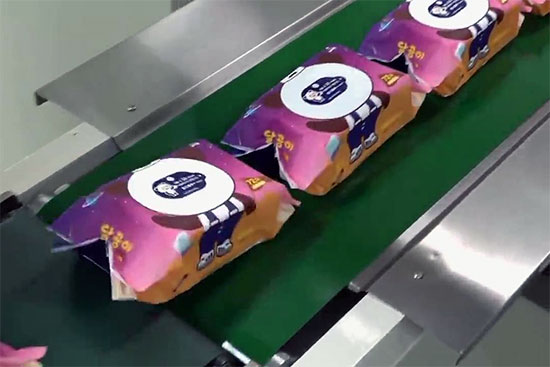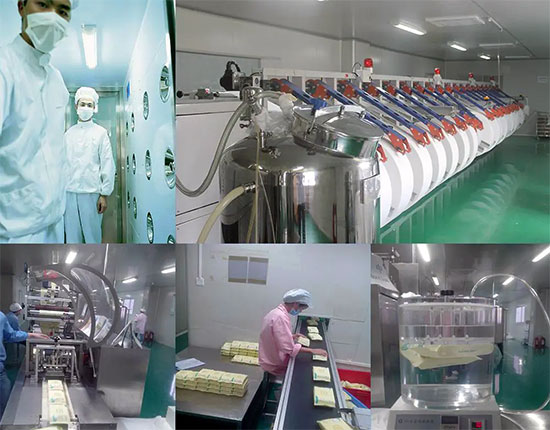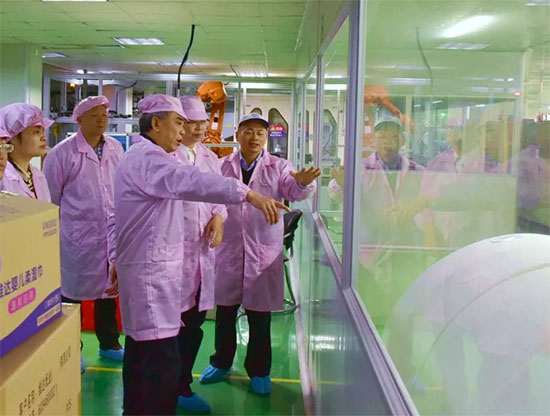+86-18927501869
- All
- Product Name
- Product Keyword
- Product Model
- Product Summary
- Product Description
- Multi Field Search
 English
EnglishViews: 1184 Author: Allen Yi Publish Time: 2025-01-05 Origin: Site
If you're looking to launch or scale your wet wipes brand, finding the right OEM (Original Equipment Manufacturer) partner is one of the most critical decisions you'll make. Whether you're new to the industry or an experienced entrepreneur, choosing a reliable manufacturer can make or break your success. But with so many options available, how do you know which one is right for your brand?
In this guide, we'll walk you through the essential factors you need to consider when selecting an OEM wet wipes manufacturer. From assessing their experience and certifications to evaluating their product quality and production capabilities, we'll help you navigate this complex decision-making process. Our goal is to help you partner with a manufacturer that aligns with your brand's needs while ensuring the best possible quality, pricing, and reliability.

Wet wipes soft pack production line
Choosing the right manufacturer for your wet wipes is essential to ensuring your product stands out in a competitive market. The wet wipes industry is highly competitive, and consumers expect top-quality, safe, and effective products. By selecting an experienced OEM manufacturer, you’re setting your brand up for long-term success.
• Wet Wipes Type Selection: Determine whether you need antibacterial wipes, baby wipes, or other specialty wipes. For example, OEM production of baby wet wipes demands specific materials and formulations to ensure safety and skin-friendliness.
• Material Requirements: Consider whether you prefer traditional synthetic materials or OEM manufacturers of biodegradable wet wipes, reflecting a growing consumer demand for eco-friendly products.
• Packaging Options: Decide on the packaging type (e.g., flip-top, resealable) and design that aligns with your brand image.
• Consistency in Quality: A reliable OEM will deliver consistent product quality, which is crucial for building customer trust and loyalty.
• Cost Control: A good manufacturer can help you manage production costs without compromising on quality, ensuring better margins for your business.
• Scalability: As your brand grows, you need a manufacturer who can scale with you. The right OEM will have the capacity and flexibility to meet your evolving production needs.
• Compliance and Safety: With regulations constantly changing, partnering with a manufacturer who is up-to-date with safety standards and certifications is vital for avoiding legal pitfalls.
When selecting a wet wipes manufacturer, one of the most important factors is their industry experience. How long have they been in business? What other brands do they work with? Do they have experience with similar products or formulations?
Look for manufacturers that have a solid reputation for producing high-quality wet wipes and a proven track record of working with brands like yours. Research their client list, ask for references, and check online reviews or testimonials to get a sense of their credibility and reliability.
The wet wipes industry is heavily regulated, with various health and safety standards in place to protect consumers. Make sure the manufacturer you choose complies with the necessary certifications, such as:
• ISO 9001: Ensures consistent quality management.
• GMP (Good Manufacturing Practice): Guarantees that products are manufactured according to strict quality control standards.
• FDA Registration: If you're selling in the U.S., FDA registration ensures the manufacturer adheres to proper safety standards for wet wipes.
• CE Marking: Required for products sold in the European Union, indicating that the manufacturer meets safety, health, and environmental protection requirements.
Having these certifications ensures that your wet wipes will meet legal requirements and safety standards.

Wet wipes produce quality control system
Before selecting a manufacturer, you'll need to assess their production capacity. How large is their manufacturing facility? Can they handle large-scale production if your brand grows rapidly? Are their lead times reasonable, and do they offer flexibility in production schedules?
Be clear about your expected order volumes and timelines to ensure they can meet your demands. Ideally, the manufacturer should have a proven ability to deliver on time, with backup plans in place for any potential delays.
Every brand is unique, and you'll want a manufacturer that can help bring your vision to life. Whether you're offering baby wipes, facial wipes, or disinfecting wipes, the ability to customize the formulation, packaging, and scent of your product is essential for standing out in the market.
When evaluating a potential OEM partner, inquire about their ability to tailor products to your specifications. A good manufacturer should offer various options for packaging materials, labels, scents, and ingredients. Additionally, they should be open to new ideas and capable of developing custom formulas to meet your specific brand requirements.
The quality of your wet wipes will play a significant role in your brand's reputation. It’s essential to ensure the manufacturer has rigorous quality control measures in place. Ask about their product testing procedures, quality assurance practices, and how they handle product defects or customer complaints.
• Microbiological Testing: Ensures that the wipes are free from harmful bacteria and pathogens.
• Stability Testing: Verifies that the wipes remain effective and safe over time.
• Dermatological Testing: Assures that the wipes are safe for sensitive skin.
If the manufacturer offers samples, request samples of their wet wipes and assess their texture, scent, and performance. This gives you a better idea of whether the manufacturer meets your quality standards.

Customers visit the dust-free workshop
Cost is always a consideration, but it shouldn't be the only deciding factor. While you want to keep production costs low to maximize profit margins, focusing too much on price may compromise the quality of your product.
When discussing pricing with potential manufacturers, ensure that all costs are transparent. Inquire about bulk order discounts, shipping fees, and any additional costs such as customization or packaging. Understand their payment terms, too—do they require a large deposit upfront, or can you pay in installments?
Finding a balance between cost and quality will be essential in establishing a sustainable business.
A strong partnership with your manufacturer will depend on clear and consistent communication. Choose a manufacturer who is responsive to your inquiries, transparent with information, and willing to collaborate with you on product development and improvements.
Good customer support goes beyond answering questions. It includes providing updates on production timelines, addressing any concerns promptly, and offering solutions if issues arise during the manufacturing process.
Consumers are becoming increasingly aware of the environmental impact of the products they purchase. Sustainable oem manufacturing practices can give your brand a competitive edge in today's market. Ask potential manufacturers about their approach to sustainability—do they use eco-friendly materials? How do they minimize waste? What are their energy-saving practices?
Being transparent about your commitment to sustainability can also attract eco-conscious consumers, especially as environmental concerns continue to grow in importance.
Choosing the right OEM wet wipes manufacturer for your brand is a decision that can impact the success of your business for years to come. By considering factors such as experience, certifications, quality control, customization options, and sustainability, you can ensure that you're partnering with a reliable and capable manufacturer.
With the right manufacturer on your side, you'll be well-positioned to create high-quality wet wipes that meet consumer demands, comply with regulations, and establish your brand as a leader in the industry.
Sywipe seizes every opportunity to use high-quality resources, including peer-reviewed research, to support the facts in our article. Learn more about our factory and how to keep the content accurate, reliable, and trustworthy. Click here to learn more
Discover Wipes Manufacturers in 2023: Insights and Trends
Unveiling the Material of Wipes: What are Wipes Made of?
Exploring China's Wipes Manufacturing: Types, Processes, Materials, and Costs
Our Customers Always Come First
Trust is the Foundation of Our Service
sales@clean-wipe.com
sywipe@clean-wipe.com
Room 4611, No. 372 Huanshi East Road, Yuexiu District, Guangzhou,China.
+86-18927501869 / +86-20-81608597
/ +86-18927501869